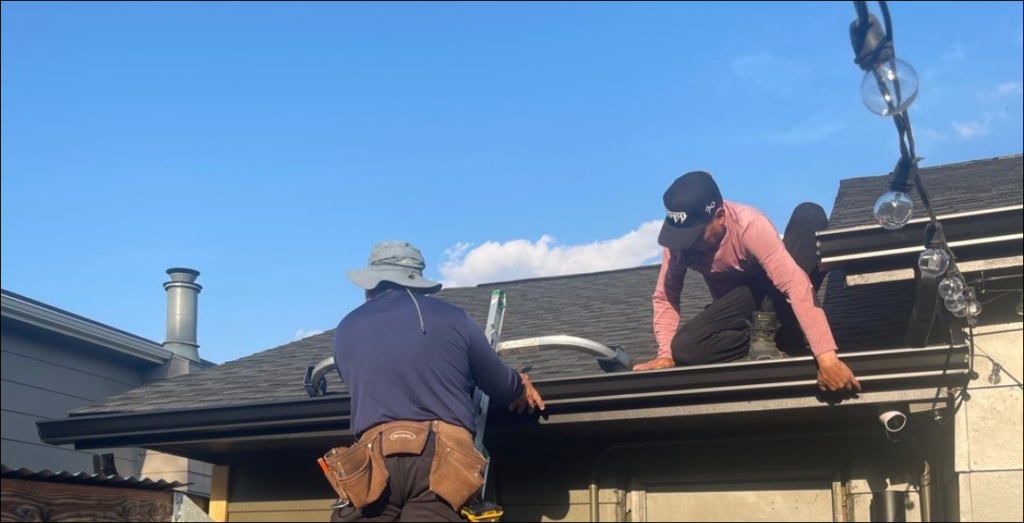Replacing a roof is a significant investment for homeowners, especially in a dynamic climate like Colorado. Understanding the process can help ensure a smooth experience and a successful outcome. In this guide, we will take you through the complete roof replacement process, highlight essential considerations, and discuss why working with experienced professionals is crucial.
Understanding the Roof Replacement Process
Roof replacement involves several critical steps, each requiring meticulous attention to detail to guarantee a durable and aesthetically pleasing result. Here is an overview of the process:
1. Initial Inspection and Assessment
The first step in the roof replacement process is a thorough inspection. Professional roofers assess the current condition of your roof, identifying any underlying issues that might affect the replacement. This includes checking for water damage, structural issues, and insulation problems.
Key Points:
- Thorough Inspection: Identifying problems early prevents future issues.
- Detailed Assessment: Understanding the roof’s current state is essential for effective planning.
2. Selection of Roofing Materials
Choosing the right materials is a crucial aspect of roof replacement. In locations where weather conditions can be unpredictable, it is essential to select materials that can withstand snow, rain, and intense sunlight.
Considerations:
- Durability: Asphalt shingles, metal roofing, and tiles are popular choices.
- Aesthetics: The material should complement the overall design of your home.
- Energy Efficiency: Some materials offer better insulation, reducing energy costs.
3. Removal of the Old Roof
The next step is to remove the existing roof. This involves stripping away old shingles and inspecting the decking underneath for any signs of damage. Ensuring a clean and solid foundation is crucial for the longevity of the new roof.
Process:
- Safe Removal: Professional roofers use techniques that minimize disruption.
- Decking Inspection: Identifying and repairing any damaged areas is critical.
4. Installation of the New Roof
Once the old roof is removed and the decking is in good condition, the installation of the new roof begins. This step involves laying down the underlayment, installing flashing, and finally adding the new roofing material.
Steps:
- Underlayment: This protective layer prevents water infiltration.
- Flashing: Installed around chimneys and vents to prevent leaks.
- Shingles/Tiles Installation: Ensures a weather-tight and durable finish.
5. Final Inspection and Clean-Up
After the installation, a final inspection is conducted to ensure everything is up to standard. Any debris from the installation is cleaned up, leaving your property tidy and safe.
Checklist:
- Quality Check: Ensures that all aspects of the installation meet industry standards.
- Clean-Up: Removing all waste materials and ensuring safety.
Factors Influencing Roof Replacement
Denver’s unique climate poses several challenges and considerations for roof replacement. Understanding these factors can help homeowners make informed decisions.
Climate Considerations
Denver experiences a wide range of weather conditions, from heavy snow in the winter to intense sun in the summer. These extremes necessitate durable and resilient roofing materials.
Materials Suited for Colorado:
- Asphalt Shingles: Offer a good balance of affordability and durability.
- Metal Roofing: Known for its longevity and resistance to weather damage.
- Tile Roofing: Provides excellent insulation and weather resistance.
Local Regulations and Permits
Before embarking on a roof replacement project, it’s essential to understand local regulations and obtain the necessary permits. Working with knowledgeable roofing companies ensures compliance with all legal requirements.
Compliance:
- Permits: Required for most roof replacement projects.
- Building Codes: Ensure safety and adherence to local standards.
The Importance of Professional Roofers
Hiring experienced professionals is vital for a successful roof replacement. Expert roofers provide valuable insights, ensuring the project is completed efficiently and to a high standard.
Benefits of Professional Roofing Services
- Expertise: Skilled roofers bring years of experience, ensuring quality workmanship.
- Efficiency: Professionals complete the job promptly, minimizing disruptions.
- Safety: Proper equipment and techniques protect both workers and homeowners.
Choosing the Right Roofing Company:
Selecting the right roofing company in Denver is crucial. Look for companies with a proven track record, excellent customer reviews, and comprehensive service offerings.
Why Choose Tried and True Roofing?
At Tried and True Roofing, we pride ourselves on delivering exceptional service and top-quality workmanship. Our team is dedicated to providing personalized solutions that meet the unique needs of our clients.
Our Commitment:
- Quality Materials: We use only the best materials for all our projects.
- Customer Satisfaction: Our priority is ensuring our clients are delighted with the final result.
- Expert Team: Our experienced team is equipped to handle any roofing challenge.
Common Challenges and Solutions in Roof Replacement
Roof replacement can present various challenges, but with the right approach, these can be effectively managed.
Weather Delays
Unpredictable weather can cause delays in the roofing process. Planning and choosing a suitable time for replacement can help mitigate these issues.
Solution:
- Seasonal Planning: Schedule roof replacement during favorable weather conditions.
Cost Considerations
Roof replacement is a significant investment, and understanding the cost breakdown is essential for budgeting.
Cost Factors:
- Materials: The choice of materials significantly affects the overall cost.
- Labor: Professional installation ensures quality, but may increase expenses.
- Permits and Fees: Consider any additional costs associated with permits.
Unexpected Repairs
During the roof replacement, unforeseen issues such as structural damage may arise, requiring additional repairs.
Solution:
- Comprehensive Inspection: A thorough initial inspection can identify potential issues early.
- Contingency Budget: Allocating extra funds for unexpected repairs can prevent financial strain.
Conclusion
Replacing a roof in Denver, CO, requires careful planning and execution. By understanding the process and working with experienced professionals, homeowners can ensure a successful outcome. Whether choosing durable materials or navigating local regulations, every step is crucial in achieving a roof that is both functional and aesthetically pleasing.
Tried and True Roofing is committed to guiding you through every stage of the roof replacement process. With our expertise and dedication, we ensure that your new roof meets all your expectations and withstands the unique challenges of the Denver climate.


